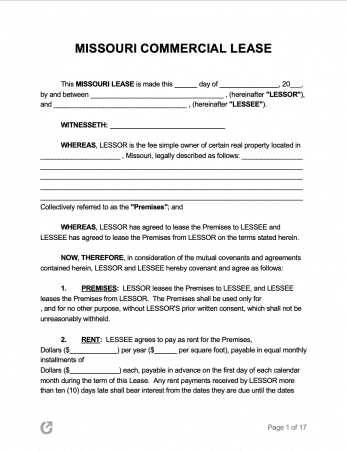
The Missouri Rental Lease Agreements are forms that can be downloaded and completed by landlords for the purpose of forming a binding agreement over the rental of real estate. “Binding” refers to both parties’ legal obligation to staying compliant with all conditions included in the form, such as the stated rent, required utility payments, mandated notices, policies on guests, and much more. With leases, it is important landlords stay compliant with both federal, state, and local ordinances and statutes, which the forms found below provide.

Commercial Lease Agreement – Sets binding conditions over the rental of business-zoned property to restaurants, offices, warehouses, retail stores, and more.
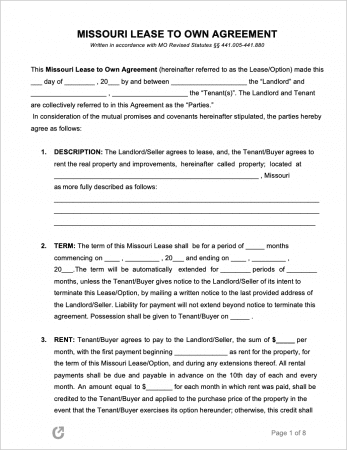
Lease to Own Agreement – Also referred to as a “Lease-Option Contract”, the agreement serves as a standard lease with the additional option of allowing the tenants to purchase the rented property for an agreed-upon price.
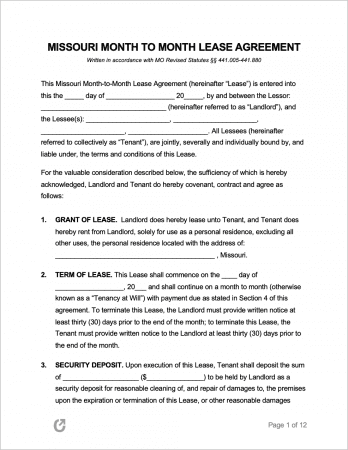
Month-to-Month Lease Agreement – A lease that renews automatically after each month, provided that neither party terminates.
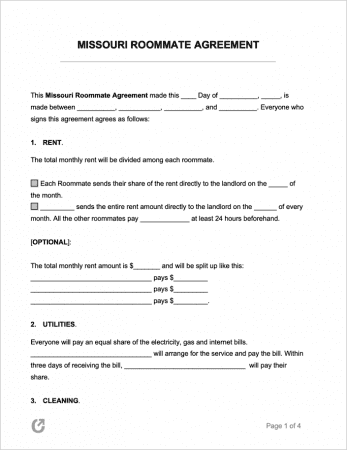
Roommate Agreement – A contract that roommates sign with the intention of clarifying any and all matters relevant to daily tasks, guests, belongings, payments, and more.
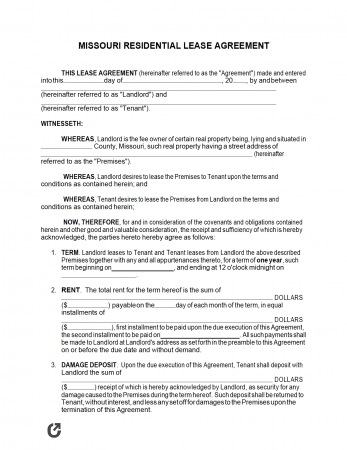
Standard Residential Lease Agreement – Compliant with MO law, the form is the most commonly used for renting out apartment units, homes, rooms, condominiums, and more.
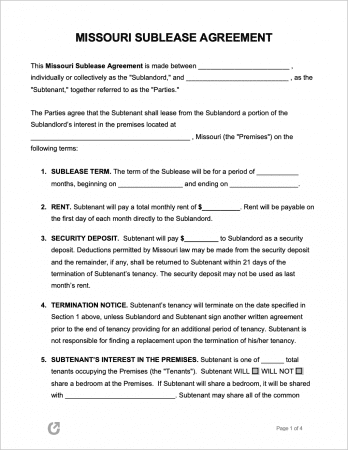
Sublease Agreement – If a tenant will be absent from the rental property for a given amount of time, they can use the document to rent out their leased space while they are gone.
A Missouri Lease Agreement is a document that requires signees—a landlord and tenant—to hold themselves accountable to the terms they mutually agreed upon. Failing to do so may result in financial or legal consequences. To prevent a situation where the tenant fails to meet their legal responsibilities, landlords should make sure to vet prospective tenants. The best way to do this is by requiring prospective tenants to complete a rental application.
Laws
Landlord-Tenant Guides / Handbooks
State law does not specify the timeframe rent must be paid by. There is also no grace period specified by state law. It is thus important that all information pertaining to rent is clarified in the written lease.
Emergency: No statute; state law is silent on matters relating to a landlord’s ability to access a rental dwelling in the event of an emergency. However, under federal law, landlords have a right to enter without notice in such situations.
Non-Emergency: No statute; landlords are advised to provide tenants with sufficient notice before entering rented dwellings (24 hours minimum).
Missouri Statute 441.630 specifies that occupants (tenants) have the following duties:
Maximum (§ 535.300): Security deposits are capped at two (2) months’ rent.
Returning to Tenant (§ 535.300): The security deposit must be returned to the tenant within thirty (30) days after the termination of the tenancy. If the landlord will withhold part or all of the deposit, they must furnish the tenant with a written itemized list of the damages the tenant has caused.
Deposit Interest (§ 535.300): All interest that accrues on security deposit is the property of the landlord.
Uses of the Deposit (§ 535.300(4)): Landlords can make deductions from the security deposit for the following reasons: